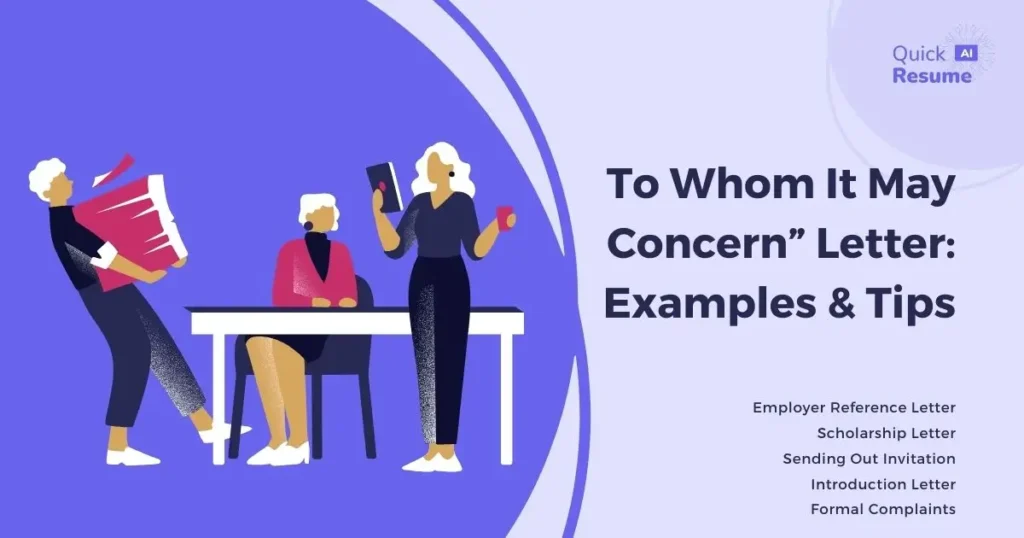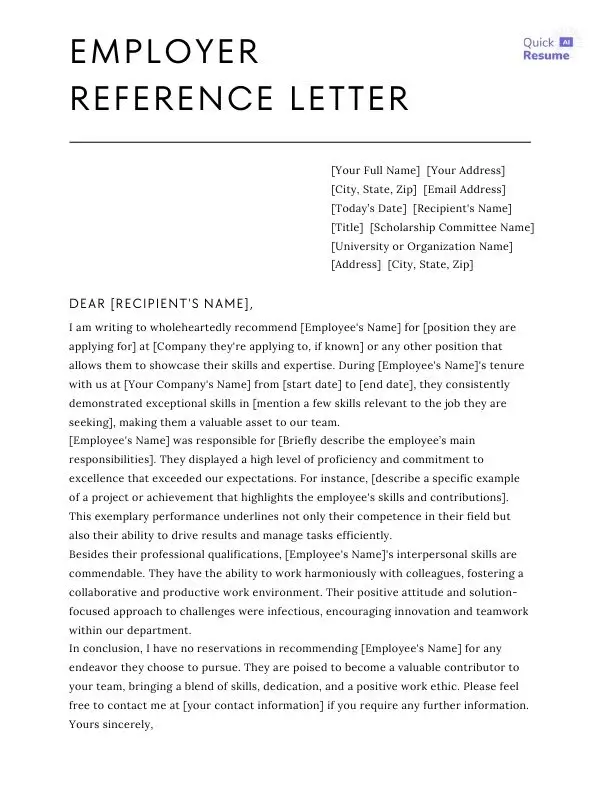
Writing letters to convey your message is an old tradition that can mould its formatting but can never go outdated. Regarding letters, they can be both formal & informal writings. As this writing piece focuses on “to whom it may concern” letters, these are the most formal writings with the perspective of addressing a professional case or conveying a message to the broader audience.
Why Don’t These Letters Contain Recipient’s Name?
There are two major reasons for this.
- The writer may be addressing a broader audience.
- He does not know the person he is addressing.
Explore Some Common Examples | “To Whom It May Concern” Letters
If you have never received such letters and are curious to learn more about its formatting and addressing sense, read this article ahead. With no further delay, let’s discuss some commonly used examples with this salutation.
01. Employer Reference Letter

Imagine the scenario that you are an employer who is writing a reference letter for his employee but with no future knowledge about who’s gonna read this letter later.
Employers always want to get through a quick experience overview of the candidate they will hire. In this case, for the recruiter or the future employer of your employee, you need to write a reference letter where you can use a “To whom it may concern” salutation instead of a name (that you don’t even know).
Because this letter is a general recommendation, it will totally go with formal writing. Here’s an image attached for your clear understanding.
02. Scholarship Letter

Scholarship letters are written for the students by the professors or the CEO of the institute they are studying in. This scenario also refers to addressing someone you do not even know.
Go for adding the same salutation to keep it general and formal.
03. Sending Out Invitation

Invitation letters are required for the visa process, which is usually sent when you miss some of your family members and ask them to visit you. Because of formal addressing, they are kept this way.
Your family can attach this document with the visa application so the embassy can clearly see why you are visiting abroad.
04. Introduction Letter

It is preferable to use “to whom it may concern” when interacting with the person for the first time. It could be your client, a company manager, or anyone.
Keep your texts simple and catchy yet formal you that the point of addressing could be clear.
Also, these letters are also termed scenario-based writings which you can clearly see in the image mentioned below.
05. Job Verification Letter

When a person is writing to confirm the employment of his worker, he can write a “to whom it may concern” letter. This letter’s concern is to clarify the point if that person to whom the letter is handover is still working in the company, has worked there before, or was never a part.
The person you are writing this letter to is still unknown therefore, the same salutation we’ll be using.
06. Formal Complaints

When writing a formal complaint to a company or provider, keeping its salutation “to whom it may concern” is recommended. Formal complaints can also contain a complete scenario-based writing that won’t be affected using this salutation. Let’s explore the below-uploaded image to clear your ambiguity.
Read More: AI-Powered Resume Optimization for Job Success
Tips For “To Whom It May Concern” Letters
Here are some to-the-point tips mentioned below so you can go with your writing smoothly.
- Always focus on the formatting of your letter, the header and footer should be aligned.
- If you want the reader’s attention on specific points, bold them.
- Keep your letter short, clear, concise, and to the point.
- Always use a formal writing style to skip later-on troubles.
- Never ever add any slang word to avoid the extension of the matter.
- Add an appreciative line using kind words so that the reader won’t get offended.
Coming To The End
Keeping the important points in notice, we can clearly conclude this article by saying that a “to whom it may concern” letter always focuses on the formal relationship between the reader and the writer. In most cases, you don’t even know who the reader is. So, always double-check the formatting, writing style, wording, length, and point of discussion to avoid any troubles. Best of luck with your take!
